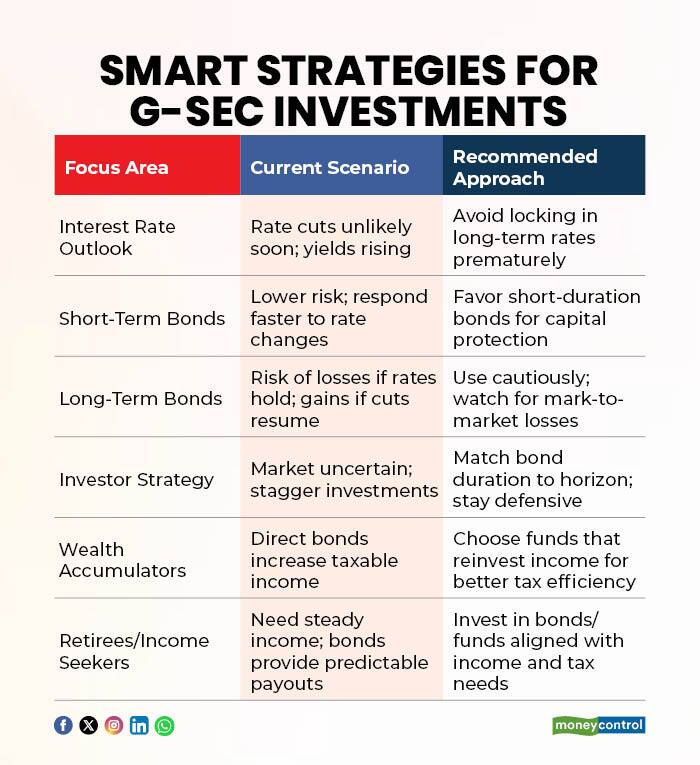



On June 5, 2025, the Reserve Bank of India (RBI) injected Rs 23,856 crore into the banking system by buying back five government bonds on behalf of the government. This move is part of the RBI’s ongoing strategy to manage liquidity and ensure stability in the financial markets through open market operations and currency swap auctions. The buyback helps maintain the smooth functioning of the banking sector.
The recent dip in prices and rise in yields reflect a mix of factors — expectations of front-loaded RBI rate cuts, global uncertainty (tariffs, geopolitical tensions), narrowing US–India yield spreads, and some profit booking.
“While the Rs 25,000 crore auction adds supply, the size isn’t large enough on its own to move yields significantly. We believe we are near the end of the rate-cut cycle. RBI’s neutral stance leaves room for cuts if growth slows or inflation undershoots,” says Shubham Gupta, CFA, co-founder of Growthvine Capital, a wealth management firm.
Why Shorter-Duration Bonds Offer More Safety NowAt the current juncture, when you are looking at only a low possibility of a rate cut, shorter-duration bonds offer a better opportunity compared to longer-duration ones. The immediate effect of any rate cut will be seen more clearly in shorter-duration bonds than in the longer end, and with higher duration comes higher risk.
When weighing fixed-income investments, consider the interest rate outlook. “If you expect more cuts, long-duration bonds can lock in current yields and gain from price appreciation; if you think cuts are done, short-duration bonds limit mark-to-market risk,” says Gupta.
If the RBI does not cut rates, those invested in the longer-duration segment will see mark-to-market losses. ‘That is why, in this environment, it is better to protect your capital by staying in the lower-duration space. You might earn slightly less income, but you will be safer and better positioned to reallocate if conditions change,” says Mayur Chavan, Fund Manager, Fixed Income , Quantum AMC.

If the RBI does not deliver any further rate cuts in the coming months, investors who are holding longer-duration bonds will likely face mark-to-market losses. That is a real possibility at this stage.
In such a situation, it is better to secure your capital rather than stretch for yield. Shorter-duration investments may offer lower absolute returns, but they shield you from larger swings in value if policy rates remain unchanged. “The core idea is to be defensive until there is more certainty on the direction of interest rates and fiscal policy,” says Chavan.
“The first principle for a retail investor who is in the accumulation mode—that means who doesn't need any income—should not be investing in any of these government bonds. Anybody who is earning and saving, but does not need regular income, should avoid these bonds because the interest you get every year gets added to your other income, diluting your overall growth and increasing your tax liability,” says B. Srinivasan, director and founder, Shree Sidvin Investment Advisors. This could even push you into a higher tax bracket, making you pay a surcharge on the entire income.
For someone who is retired and wants a regular income, it makes sense to invest in government bonds up to certain levels so that the interest earned does not increase their total income beyond the taxable limit.
You must match your bond duration to your investment horizon to avoid forced exits in volatile markets and stagger your purchases to average entry yields over time.
“But for others, especially those still accumulating wealth, it’s better to invest in government securities through mutual funds that offer accumulation options rather than direct bonds, which pay interest annually,” says Srinivsan.
Discover the latest Business News, Sensex, and Nifty updates. Obtain Personal Finance insights, tax queries, and expert opinions on Moneycontrol or download the Moneycontrol App to stay updated!
Find the best of Al News in one place, specially curated for you every weekend.
Stay on top of the latest tech trends and biggest startup news.